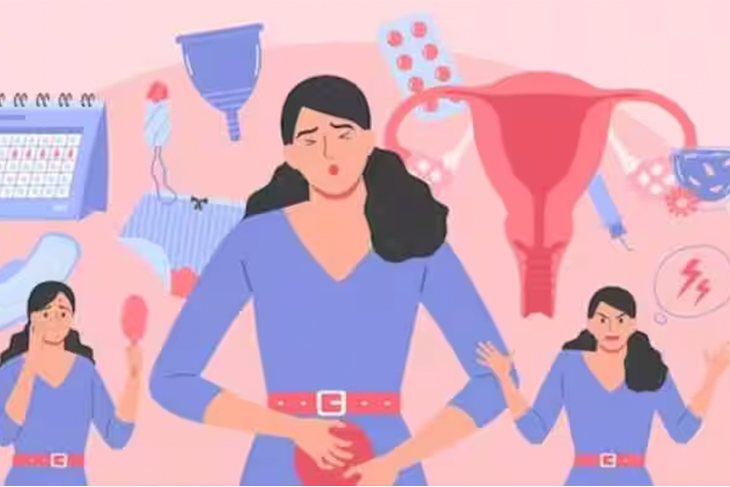Menstruation is a natural occurrence marking a significant physiological and psychological milestone in the reproductive life of women. As a country, we feel proud to see the gaining momentum in public health discourse promoting menstrual hygiene scheme amongst adolescent girls in rural areas, such as becoming an integral part of Swachh Bharat Mission and now with the new National Menstrual Hygiene Policy. Yet, menstruation or menstrual health management is still a topic that is under-prioritised in a country like India, where half the population comprises of women and girls.
The social taboos surrounding menstruation of women and girls pose significant barriers to achieve period equity and optimal vaginal health both in the place of work and in personal spaces, as menstrual health is essential for vaginal health and healthy fertility. Specifically, women and girls from marginalised and vulnerable communities face obstacles in accessing menstrual hygiene resources equitably.
Yet there are challenges to equity.
While women have moved beyond and are participating in different spheres equally, it also becomes important to consider the aspect of health, and ensure safety to promote equity. Even today, studies have proven that social taboos like restrictions in sleeping on a bed, cooking or visiting religious places limits women and girls of menstruating age. A study done by ActionAid Association in three cities in India to gauge the impact of COVID-19 on women stated that – “it was a challenge for women especially during their menstrual periods to use washrooms often, since men and older women have always objected and tried to restrict their mobility whether outside or even within the house from one room to another.”
Another study conducted by ActionAid Association during COVID-19 reveals that women in informal work often have no access to washrooms, clean water for bathing, as well as to cost effective hygiene products and their safe disposal. They even lack privacy to change their menstrual products. Recently, the Supreme Court refused to consider a PIL regarding menstrual leave for employees and students nationwide. Right of Women to Menstrual Leave and Free Access to Menstrual Health Products Bill, 2022 specifies three days paid leave, yet only Kerala and Bihar, have adopted it. Women in the world of work continue to face challenge during their periods.<
Distribution of sanitary pads, on its own is not enough of a solution to address this complex systematic issue. Comprehensive and meaningful education on menstrual process is required to allow girls and women make informed choices. We need to create and ensure that there is a supportive environment at home, in the community, in public spaces, at school and in the workplace. We also need to encourage, in a sensitive manner conversations that can help boys and men understand the challenges of managing menstrual health, shorn of any myth and attendant stigma. Together these measures will help build an inclusive policy that also caters to the needs of people with different abilities, transgender men and people with other gender identities who menstruate.
In general, there’s a need to redefine societal attitudes toward menstruation, necessitating a change in perspective, and immediate actions must be implemented to ensure the availability of essential facilities to tackle menstrual challenges. Undoubtedly, menstrual health plays a pivotal role in shaping an individual’s overall well-being and quality of life, affecting various aspects including mobility, work participation, access to education, dignity, and freedom.
We have a long way to go to end period poverty and ensure period equity.
Disclaimer: The article was originally published on Zee News. The views expressed in the article are the author’s and do not necessarily reflect those of ActionAid Association.
 Author: Vandana Burder | Esther Mariaselvam
Author: Vandana Burder | Esther Mariaselvam

